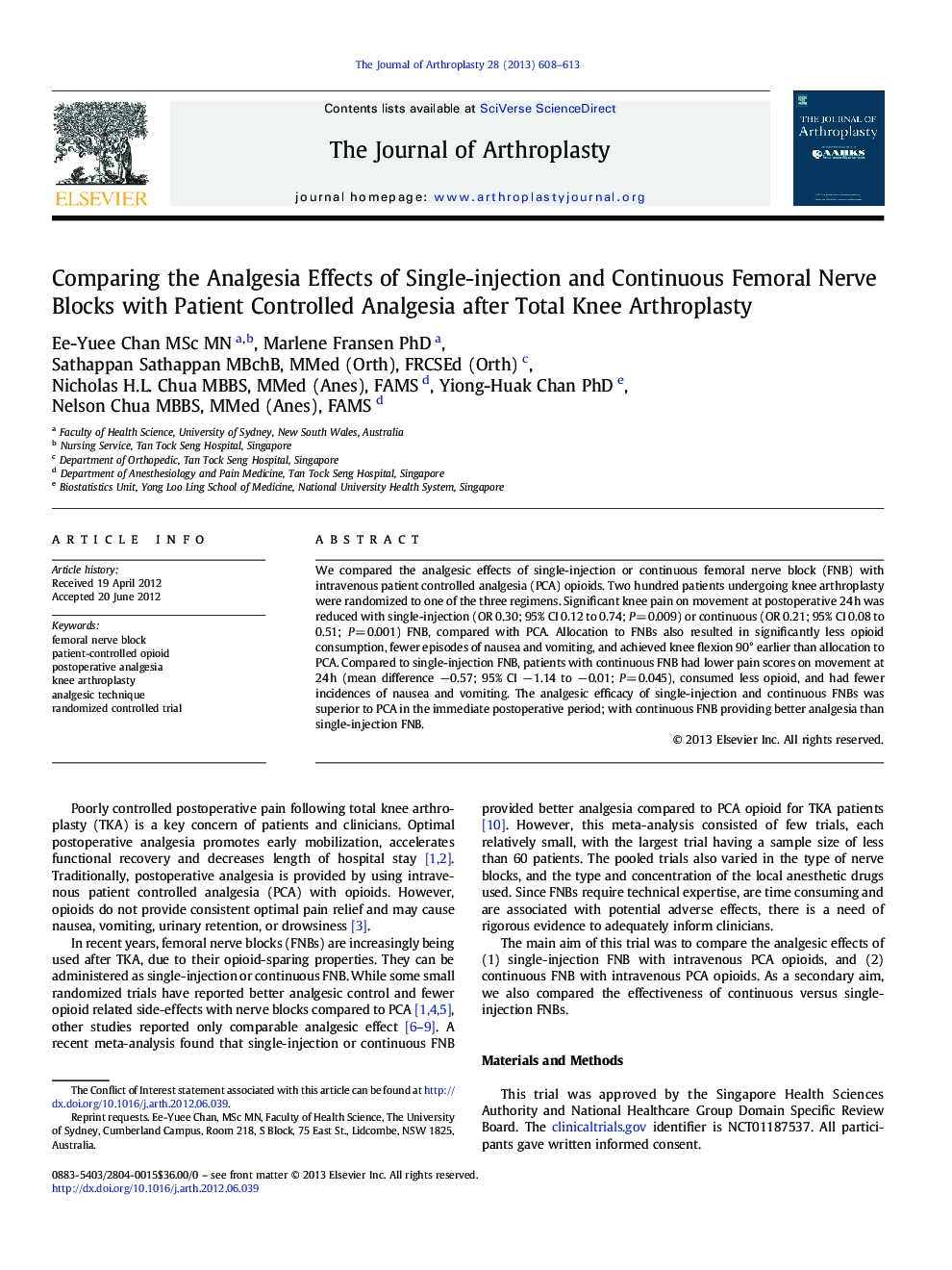| Article ID | Journal | Published Year | Pages | File Type |
|---|---|---|---|---|
| 4061323 | The Journal of Arthroplasty | 2013 | 6 Pages |
We compared the analgesic effects of single-injection or continuous femoral nerve block (FNB) with intravenous patient controlled analgesia (PCA) opioids. Two hundred patients undergoing knee arthroplasty were randomized to one of the three regimens. Significant knee pain on movement at postoperative 24 h was reduced with single-injection (OR 0.30; 95% CI 0.12 to 0.74; P = 0.009) or continuous (OR 0.21; 95% CI 0.08 to 0.51; P = 0.001) FNB, compared with PCA. Allocation to FNBs also resulted in significantly less opioid consumption, fewer episodes of nausea and vomiting, and achieved knee flexion 90° earlier than allocation to PCA. Compared to single-injection FNB, patients with continuous FNB had lower pain scores on movement at 24 h (mean difference − 0.57; 95% CI − 1.14 to − 0.01; P = 0.045), consumed less opioid, and had fewer incidences of nausea and vomiting. The analgesic efficacy of single-injection and continuous FNBs was superior to PCA in the immediate postoperative period; with continuous FNB providing better analgesia than single-injection FNB.
